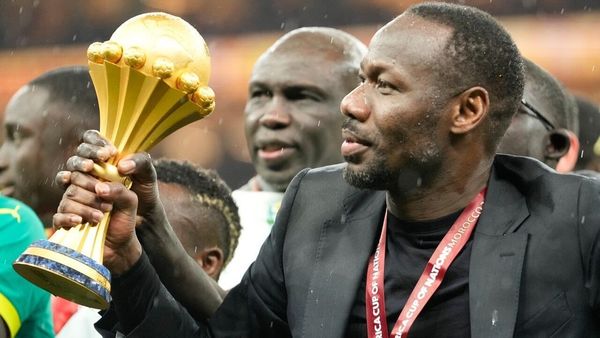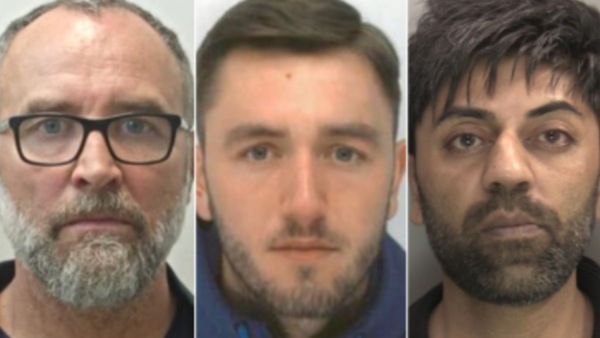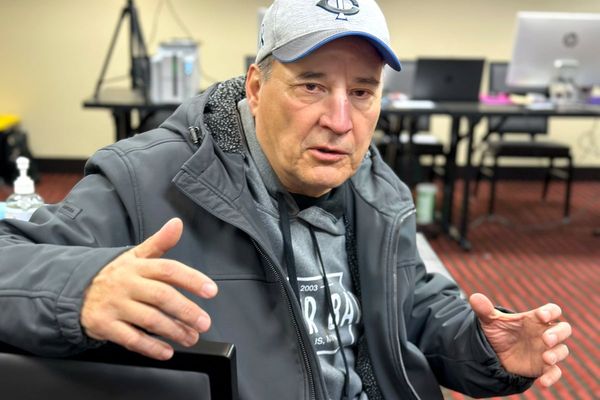ORLANDO, Fla. — Yovanna Pineda, hired more than a decade ago to teach Latin American history at the University of Central Florida, rebranded one of her signature courses last fall.
Striking references to “dictatorships” and “human rights” from the title, she decided to simply call her class “History of South America.”
Pineda said many of her colleagues are making similar changes, either because they fear blowback from state leaders who say they are trying to eliminate “indoctrination” from university campuses or because they don’t want the hassle of additional scrutiny.
“Some of us are becoming a little more cautious about how we say things and much more aware of how we title our courses,” Pineda said.
Even as the implementation of a new law that Republican Gov. Ron DeSantis said is intended to combat the “far-left woke agenda” stalls in court, university faculty members like Pineda have renamed their courses or shied away from hot-button topics like race and sexuality.
DeSantis signed the law, dubbed “Stop WOKE,” last summer, banning the teaching of a once-esoteric academic concept called critical race theory in state universities, colleges and K-12 schools. A federal court has temporarily blocked the law, which prohibits teaching students that people are “privileged or oppressed” based on their race, color, nationality or sex, with a judge describing it as a “positively dystopian” violation of professors’ First Amendment rights.
But DeSantis has continued his campaign, this month appointing far-right activist Christopher Rufo to the Board of Trustees at New College of Florida. Rufo is best known for launching a national campaign against critical race theory, turning the once-obscure subject into a lightning rod that has prompted protests at school boards across the country.
DeSantis hopes the new trustees will help correct a “skewed focus and impractical course offerings” at New College that have resulted in low student enrollment and financial problems, according to a statement Bryan Griffin, a spokesperson for the governor, provided to the News Service of Florida.
Rufo told The New York Times he and his new colleagues seek to transform New College into a public version of Michigan’s Hillsdale College, a conservative Christian school.
“We want to provide an alternative for conservative families in the state of Florida to say there is a public university that reflects your values,” he said.
The appointment of Rufo and the others to New College’s board prompted protests at Sarasota County’s legislative delegation meeting on Thursday. A petition against the appointments had gathered more than 1,500 signatures by Friday afternoon. New College students “feel they are being used as a pawn in the governor’s game,” the petition said, and urge the Legislature to vote against confirming the appointments.
“The governor frequently espouses a belief that parents and students should have control over pursuing an education of their own choosing,” the petition said. “For this reason, many of us associated with this school have been struck by the flippancy with which he would deny students at New College that right by pushing to remake the school in his own image, against the will of students, parents, and faculty.”
And on Thursday, Florida House Speaker Paul Renner, R-Palm Coast, sent letters to presidents of the 12 state institutions, requesting records including lists of all diversity, equity and inclusion employees; a description of their responsibilities; and their salaries.
The purpose, he wrote, was to ensure students are receiving an education without “promoting an aggressively ideological agenda under the guise of diversity, equity and inclusion,” and to assess the “costs and benefits” of these initiatives.
Renner’s request follows one from DeSantis’ office last week, which sought a “comprehensive list of all staff, programs and campus activities” related to critical race theory and diversity, equity and inclusion at colleges and universities. Faculty unions decried the inquiry, saying they feared it could chill free speech on their campuses.
And faculty members say they’ve seen other signs that the governor has gained a foothold on their campuses, including the removal of the words “social justice” from the name of an office at UCF, which has been rebranded as the Office of Civil Discourse. The words “equity” and “equal” were also stripped from the office’s webpage.
A spokesperson for the university said the name change was prompted by the office’s move to the new Ginsburg Center for Inclusion and Community Engagement, which promotes diversity and inclusion initiatives.
“Existing UCF offices and staff with areas of emphasis related to cross-cultural competencies, civil discourse and civic engagement became part of the center,” Gilmartin wrote. “As part of this ongoing transition, names and efforts are being updated to align with the Center’s mission and UCF’s commitment to inclusive excellence.”
She did not respond to questions about whether changing the name of the office and the language on the website was prompted by the “Stop WOKE” law or direction from the governor’s office or the state university system.
But some faculty members and students suspect political pressure spurred the name change, said Martha Brenckle, a professor in the College of Arts and Humanities at UCF. There’s a feeling of “distrust and uneasiness” across the campus, she said.
“I just feel like that free thinking is being attacked, questioning your governor is being attacked,” she said.
Some faculty members have gone so far as to change the content of their courses, including a sociology professor who told ProPublica he’d scrapped two courses on race-related issues a month before the fall semester was to start. The faculty member, who did not yet have tenure, said he feared losing his job.
Though DeSantis has directed much of his scrutiny at the state universities, some state college faculty say they feel like they’re under attack too. Chris Borglum, an English instructor at Valencia College’s Winter Park campus, described a feeling of “dismay and anxiety” among his colleagues.
The point of higher education, he said, is to teach students to evaluate sources of information, think about important concepts and form their own opinions.
“There’s no need for any governmental institutions to interfere with that process,” said Borglum, who has taught at Valencia for 30 years.
DeSantis and his allies have beat the drum about the importance of free speech, Borglum said. Two years ago, they backed a separate law that required universities to survey employees and students about whether they felt their campuses promoted the free exchange of ideas. Few people filled out the surveys across the state, but a majority of those who did agreed that liberal and conservative ideas and beliefs were equally tolerated on campus.
The latest push to rid universities of critical race theory, he said, shows the governor and other conservatives “think their ideas are not winning in the marketplace of ideas so they need to rig the game.”
“I will change nothing, he said, adding “I have argued that those of us with tenure have a responsibility to not change what we do.”
Jack Chambless, who teaches economics at Valencia’s west campus in MetroWest, said he’s never heard of a student complaining another instructor tried to indoctrinate them in class.
“We’re doing our jobs in a professional way and we’re not crossing any lines that the public should be concerned about,” Chambless said.
Chambless, who is in his 32nd year at Valencia, said college administrators have never tried to discourage him from publicly expressing his Libertarian views. In November, he gave a talk called “Did Racism create Capitalism?” critiquing Ibram X. Kendi’s “How to be an Antiracist.” The speech, which was open to the public, was well-attended by students who asked thoughtful questions.
But he said he’s heard stories of students elsewhere shouting down conservative speakers or trying to prevent them from sharing their views. There’s “a growing pressure in higher education to not be an environment where all voices should be heard,” he said, and Florida leaders may be responding to that tension.
“What may be happening in Florida may be a reaction to what is happening elsewhere,” he said.
———







